Participants
ORGANIZING COMMITTEE
- Bernie Engel, Purdue University
- Dennis C. Flanagan, USDA ARS
- Pat Havens, Corteva Agriscience
- Eric Henry, BASF
- James (Trip) Hook, USEPA
- Mark Thomas, Bayer Crop Science
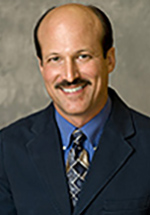
Jeff Arnold
Dr. Jeff Arnold received his B.S. and M.S. degrees from the University of Illinois in Agricultural Engineering, and his Ph.D. in Biological and Agricultural Engineering from Purdue University. He joined the Agricultural Research Service (ARS) in 1983 as a hydraulic engineer at the Grassland, Soil and Water Research Laboratory (GSWRL) in Temple, Texas. He spent three years at the ARS National Soil Erosion Research Laboratory in West Lafayette, Indiana as an agricultural engineer and returned to Temple in 1992. Jeff’s research interests include development of river basin scale hydrologic models, national conservation and environmental assessments, and global water balance and vegetation models.
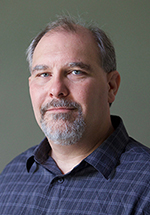
Bill Bogan
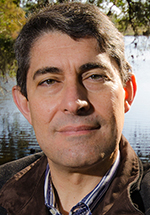
Rafael Muñoz-Carpena
Dr. Rafael Muñoz-Carpena is currently Full Professor of Hydrology and Environmental Modeling at the University of Florida, USA. He is an Agricultural Engineer (ETSIA Madrid, Spain), and received his Ph.D. North Carolina State University specializing in water resources. His work focuses on modelling integrated environmental systems, including the interactions between hydrological, ecological and human components. He developed the VFSMOD model to study the effect of plant filters as a mitigation measure to reduce pollution from agro-chemical products in runoff.
He is passionate about graduate advising and has directed 22 PhD students and 8 postdoctoral researchers who are currently in prestigious academic, government and industry positions around the world. He is the author of over 140 publications in peer-reviewed journals, two books, 11 book chapters and 350 other technical publications. Among other international recognitions including awards and 'Fellow' of several professional organizations, in 2015 he was elected Corresponding Member of the Spanish Royal Academy of Engineering (RAIng).
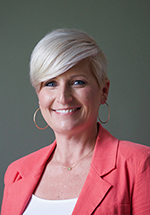
Meredith Cobb
Meredith Cobb is a Research Administration Specialist in the College of Agriculture. Meredith helps manage large research projects within the College as well as the AgSEED grant program. She also oversees the Indiana mint, turkey, and sheep and wool check-off programs.
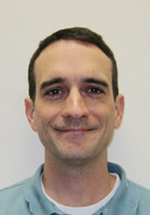
Chris Coreil
Chris Coreil received his B.S. degree in Agribusiness from the University of Southwestern Louisiana in 1995, and an M.S. degree in Agronomy from Louisiana State University in 1998. From 1998-2004, he was an environmental consultant, and served as an intermediary between clients and EPA and state regulatory agencies. Chris joined USDA-NRCS in 2004, and worked in the Crowley, Jeff Davis, and DeRidder Field Offices as both a Soil Conservationist and District Conservationist in Louisiana. From 2009-2019, he served as the State Agronomist for NRCS in Louisiana. He is now the NRCS National Erosion Specialist, working on process-based wind and water erosion implementation and application efforts by NRCS, including cooperative development of WEPP and WEPS model interfaces and databases with USDA-ARS.
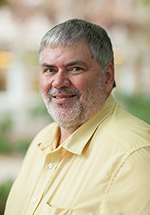
Bernie Engel
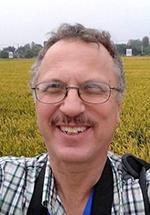
Dennis Flanagan
Dr. Dennis C. Flanagan is a research agricultural engineer with the USDA Agricultural Research Service at the National Soil Erosion Research Laboratory (NSERL) in West Lafayette, Indiana. He is also an adjunct Professor of Agricultural & Biological Engineering at Purdue University. His research is in soil erosion by water mechanics, erosion control, and erosion prediction technologies. Dennis is also a lead research scientist at the NSERL, as well as the leader of the national USDA Water Erosion Prediction Project. He has a B.S. from the Ohio State University, and M.S. and Ph.D. degrees from Purdue University, all in Agricultural Engineering. He has authored or co-authored 260 publications, including 118 peer-reviewed journal articles, and is a Fellow of the American Society of Agricultural and Biological Engineers.

Lula Ghebremichael
Lula Ghebremichael, Ph.D. - Technical Expert in environmental exposure modeling and endangered species spatial data analysis at Syngenta Crop Protection, LLC. She holds a Ph.D. degree, from Pennsylvania State University, in Agricultural and Biological Engineering with a focus on hydrological and water quality modeling of agricultural watersheds.
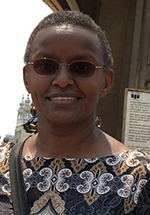
Margaret Gitau
Dr. Margaret Gitau is associate professor of agricultural and biological engineering. Her research focuses on water resources and ecohydrologic engineering with emphasis on: Water Resources; Water Quality; Integrated (hydrologic, water quality, statistical) Modeling; and, Data-Driven Decision-Making and Management, with particular focus on environmental and source waters. Dr. Gitau has served on the editorial boards of three internationally recognized journals: Transactions of the American Society of Agricultural and Biological Engineers (ASABE, 2007-2019), Applied Engineering in Agriculture (2007-2019), and the Journal of Soil and Water Conservation (2013-present).
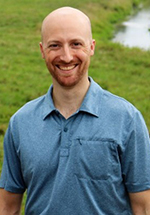
Nicholas Goeser
Dr. Nicholas J. Goeser is the CEO of the Alliance for Crop, Soil and Environmental Science Societies, the American Society of Agronomy (ASA), Crop Science Society of America (CSSA), and Soil Science Society of America (SSSA). He also serves as the Secretary/Treasurer of the Agronomic Science Foundation (ASF).
Nick has over a decade of organizational leadership, sustainability strategy development and research experience in the areas of crop production, nutrient cycling and management, and environmental quality. He has served in Vice President roles for U.S. Farmers & Ranchers Alliance and National Corn Growers Association. Nick also launched and grew The Soil Health Partnership as the first Director.
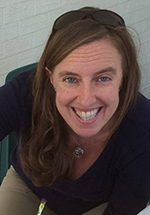
Nancy Golden
Dr. Nancy Golden is an environmental toxicologist with the U.S. Fish and Wildlife Service. Nancy works with private stakeholders and other federal entities to assess the effects of pesticide registration and use on protected species to ensure compliance with the Endangered Species Act and Migratory Bird Treaty Act and aid in the conservation of sensitive species. Nancy has a Ph.D. from the University of Maryland at College Park where she studied the effects of contaminants on terrestrial vertebrate species.

Tian Guo
Dr. Tian Guo is a Research Scientist with Dr. Bernard Engel with Dept. Agricultural & Biological Engineering (ABE) and Dr. Dennis Flanagan with the National Soil Erosion Research Laboratory. She received her PhD from ABE under the mentorship of Dr. Engel in 2016 and worked as a Postdoc with Dr. Margaret Gitau for ten months after graduation. Prior to joining back to ABE in 2020, Dr. Guo worked at the National Center for Water Quality Research in Ohio. Her research focuses on the evaluation of the impacts of climate and land use changes, and human decisions on crop yields, hydrology, soil erosion, and water quality at various scales in the Mississippi River Basin and the Great Lakes region. Her primary research goals are to improve soil health, climate resiliency, agricultural sustainability, and water quality.
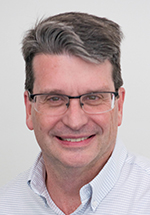
Pat Havens

Eric Henry
Eric J. Henry, Ph.D. – A former professor, Eric currently works as an exposure assessment scientist and member of the Environmental Fate group at BASF. He conducts exposure modeling and provides regulatory support for plant protection products in the US and Europe.
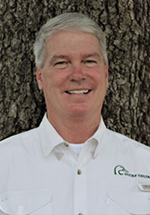
Scott Manley
Scott W. Manley, Ph.D. – Director of Conservation Programs, 30 years’ experience in wetlands and water conservation with focus on agricultural systems, last 20 years with Ducks Unlimited as conservation program director. Native Texan and earned graduate degrees at Mississippi State University.
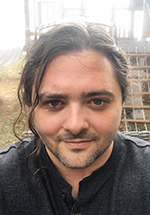
Ryan McGehee
Ryan McGehee is a doctoral student in the Department of Agricultural and Biological Engineering under Dr. Dennis Flanagan and Dr. Bernard Engel. Ryan’s research has primarily focused on developing and improving terrain, precipitation, hydrologic, and water quality models aimed at addressing issues of extreme weather (e.g. flooding and droughts), climate variability and change, precipitation characteristics, and most recently, biogeochemical processes and impacts of agricultural management practices. Ryan has developed and published methods, software, and databases, to support modeling communities and model applications in multiple modeling spaces (e.g. MHAND, WEPPCLIFF, precipitation erosivity). His current work involves developing and validating non-point source pollutant transport routines to be coupled with the WEPP Hillslope and Watershed models and software to extract agricultural management practices from satellite images. Ryan began his doctoral studies at Purdue in 2018 after graduating from Auburn University where he received his M.S. and B.S. degrees in Biosystems Engineering.
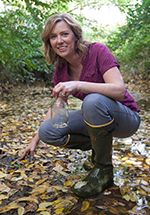
Sara McMillan
Dr. Sara McMillan is an Associate Professor in Agricultural and Biological Engineering at Purdue University. She is recognized leader in water quality and hydrologic impacts of ecological restoration and agricultural water management. She has over 15 years of experience in industry and academia developing data-driven, sustainable solutions that ensure access to clean water, sustainable food production, and heathy ecosystems. Her current research program focuses on wetland and floodplain restoration in agricultural and urban landscapes.
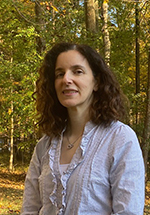
Sara Pollack
Dr. Sara Pollack received her B.S. degree in marine biology and M.S. and Ph.D. degrees in fisheries science from the University of Maryland, College Park with a focus in aquatic toxicology and endocrine disruptors. She also holds a GIS certification from the Pennsylvania State University. She began her career at the U.S. Environmental Protection Agency in the Office of Pollution Prevention and Toxics reviewing ecological risk assessments for new chemicals entering into commerce. She is currently at the U.S. Fish and Wildlife Service where she develops partnerships and works closely with other Federal agencies on section 7 consultations under the Endangered Species Act.
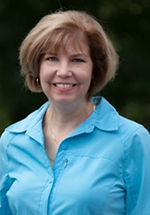
Amy Ritter
Amy Ritter heads the Exposure Assessment Modeling team at Waterborne Environmental, Inc. She has over 25 years of experience conducting hydrologic and water quality investigations with special expertise in fate and transport modeling. She has co-developed a model to simulate pesticide fate and transport associated with flooded agriculture (rice). Ms. Ritter has served on the Executive Committee of AGRO division of American Chemical Society since 2014. She has been an instructor for IUPAC risk assessment workshops in China, Colombia, Chile, and Costa Rica. Ms. Ritter has a B.S. in Civil Engineering from Purdue University and an M.S. in Civil Engineering from Colorado State University. She is a licensed Professional Engineer (PE) in the state of Virginia.
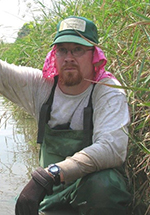
Peter (Rocky) C. Smiley Jr.
Dr. Peter (Rocky) C. Smiley Jr. is a research ecologist with the USDA Agricultural Research Service in Columbus, Ohio. He is also an adjunct faculty member at Purdue University Fort Wayne and Ohio State University. His research specialties are restoration ecology and community ecology, and his research program focuses on providing science-based information to guide the restoration of agricultural headwater streams. Rocky is the co-editor of the book “Ecological Restoration in the Midwest. Past, Present, and Future” that is available from University of Iowa Press. He has a Bachelor’s degree in Art and Biology from Hiram College, a Master’s degree in Biology from the University of Mississippi, and a PhD in Forest Resources from Mississippi State University.

Michelle Soupir
Dr. Michelle Soupir, Ph.D. - Dr. Soupir's research program focuses on sustainable water systems with an emphasis on nonpoint source pollution control, watershed management, and water quality monitoring. Her research projects encompass multiple scales to answer basic and applied research questions regarding the occurrence, fate and transport of pathogens, pathogen indicators, nutrients and contaminants of emerging environmental concern (CoEECs) such as antibiotics and antimicrobial resistance (AMR) to surface and groundwater systems. Her work is focused on the impacts of agricultural practices, primarily application of nature, on water quality. Through unique environmental monitoring, she works to design conservation practices to mitigate the impact of agricultural nonpoint source pollution on downstream waters, and reduce public exposure to these contaminants.
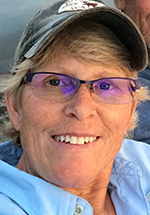
Lori Stevenson
Lori Stevenson has worked for the U.S. Fish and Wildlife Service (USFWS) for 33 years and for the past 8 years has worked as the State Private Lands Coordinator for the USFWS’s Partners for Fish and Wildlife (PFW) Program in Ohio. Lori has worked in the PFW Program since 1993 (previously as a USFWS private lands biologist in Minnesota and Washington) and has developed partnerships to complete hundreds of habitat improvement projects over her career.
Lori has a Bachelor of Science Degree in Biology/Zoology (1984) from Northeastern State University, Tahlequah, OK, and a Master’s of Science in Biology (1986) from Pittsburg State University, Pittsburg, KS.

Jane Tang
Dr. Jane Tang heads Environmental Exposure Modeling team, Environmental Safety for Bayer CropScience in North America. She holds a Ph.D. (Purdue University, USA) degree in Environmental and Natural Resources Engineering with a focus on hydrological and water quality modeling and remote sensing / GIS applications. Jane’s 16-year career at Bayer spans the areas of surface and ground water exposure assessment, kinetic analysis, and spray drift modeling. Jane is very active in CLA/CLI committees, and promotes multi-stakeholder collaborations on aquatic modeling and spray drift – she has served in various technical leadership roles and represent working groups in scientific and regulatory venues to advance science-based exposure and risk assessment in the registration of crop protection products.
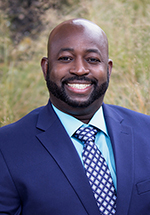
Mark Anthony Thomas
Mark Anthony Thomas, Ph.D., is an environmental fate and exposure modeling scientist in the Regulatory Science organization, Bayer U.S. Crop Science, Chesterfield, Missouri. Mark has been a global resource in delivering environmental safety data to support ecological risk assessments and driving robust science to support product registration or re-registration, and to enable the license-to-operate for the company’s core chemistry business.
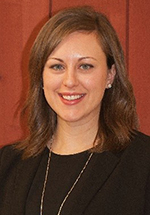
Aly Wells
Aly Wells is the Director of Production and Environment for the Indiana Soybean Alliance (ISA) and Indiana Corn Marketing Council (ICMC). In her role Aly leads the organizations’ production research investments, on-farm trials and environmental programs and serves as chair of the Indiana Agriculture Nutrient Alliance. Prior to joining ISA and ICMC, Aly worked in the Division of Policy & Regulatory Affairs for the Indiana State Department of Agriculture. Aly received her B.A. from Butler University and her J.D. from Indiana University Robert H. McKinney School of Law, where she earned additional certificates in Environmental and Natural Resources Law and Public Policy Mediation.
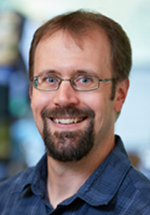
Mike Winchell
